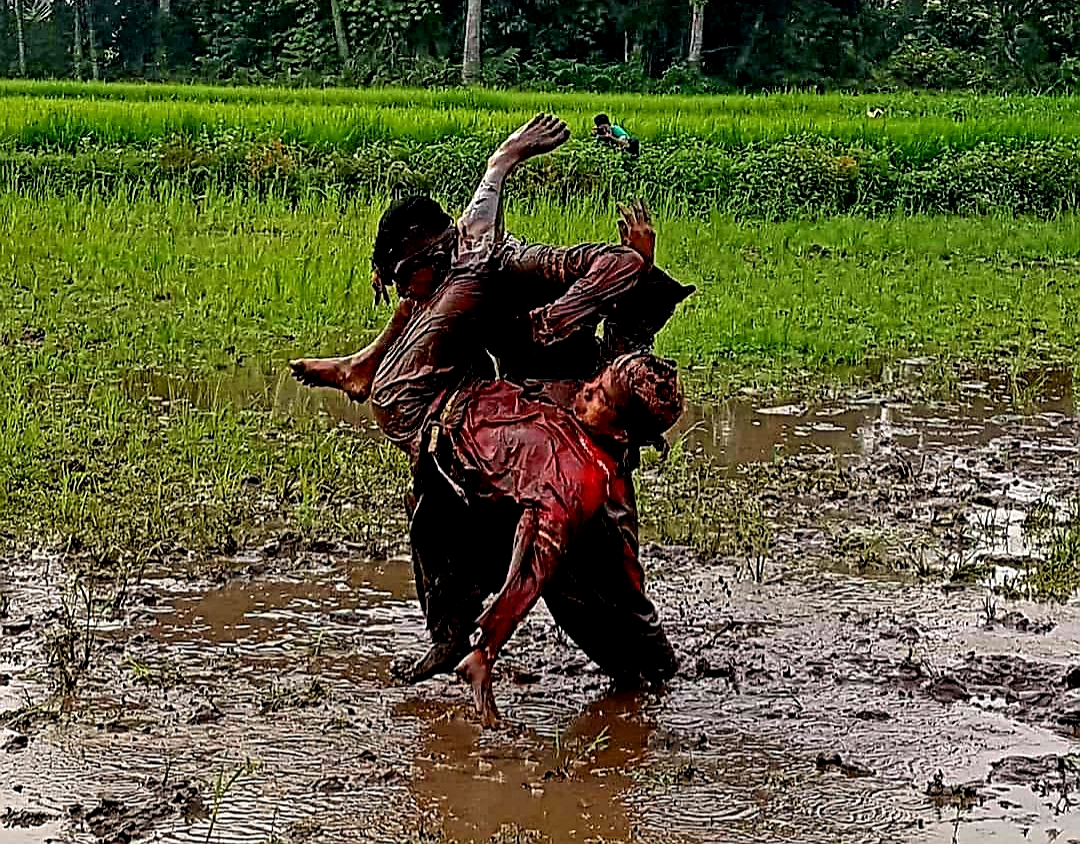Agrarian Reform in Indonesia: Analyze Concepts and Their Implementation from a Governance Perspective
Abstract
Analysis of the relationship between inequality, agrarian reform, and corruption as well as public administration reform has not been discussed, both in terms of the formation and implementation of agrarian reform in Indonesia. This article aims to explore the concept and implementation of agrarian reform, as well as the influence of governance conditions in the management of natural resources in the implementation of agrarian reform. With the characteristics of agrarian issues in Indonesia, land administration and those related to the implementation of redistribution of benefits from the use of natural resources need to be strengthened with appropriate concepts or theories, including public information disclosure as a fulfillment of substantive and deliberative implementation of democracy. In addition, by referring to experiences in other countries, agrarian reform needs to be carried out by reducing the level of clientelism and implemented through a number of corruption prevention and prosecution programs, especially in the fields of land and other natural resources.
References
Aspinal, E., & Berenschot, W. (2019). Democracy for sale: Elections, clientelism, and the state in Indonesia. Ithaca, London: Cornell University Press.
Arko-Adjei, A. (2011). Adapting land administration to the institutional framework of customary tenure: The case of peri-urban Ghana (dissertation). Delft: Delft University of Technology.
Bowornwathana, B., & Poocharoen, O. O. (2010). Bureaucratic politics and administrative reform: Why politics matters. Public Organ. Rev. 10(4), 303–321.
Bruce, J. (1993). Do indigenous tenure systems constrain agricultural development? In T. Basset, & D. Crummey (Eds.), Land in African agrarian systems (pp. 35–56). Madison: The University of Wisconsin Press.
Baker, J. (2020). Jaringan korupsi di sektor kehutanan Indonesia: Politik dan pulp di Pelalawan Riau. Jakarta: CMI Michelsen Institut. Kerjasama KPK dan GIZ.
Cahyono, E., & Galudra, G. (2019). Kebijakan reforma agraria dan perhutanan sosial di Indonesia: Refleksi dan kontekstualisasi kebijakan pembangunan nasional [Policy Brief]. Bangkok: The Center for People and Forest (RECOFTC).
Chitonge, H., Mfune, O., Umar, B. B., Kajoba, G. M., Banda, D., & Ntsebeza, L. (2017). Silent privatisation of customary land in Zambia: Opportunities for a few, challenges for many. Social Dynamics, 43(1), 82–102. https://doi.org/10.1080/02533952.2017.1356049
Delius, P. (2008). Contested terrain: Land rights and chiefly power in historical perspective. In A. Claassens, & B. Cousins (Eds.), Land, power & custom: Controversies generated by South Africa's communal land rights act (pp. 211–237). Cape Town: UCT Press.
Fatem, S. M., Awang, S. A., Pudyatmoko, S., Sahide, M. A., Pratama, A. A., & Maryudi, A. (2018). Camouflaging economic development agendas with forest conservation narratives: A strategy of lower governments for gaining authority in the re-centralising Indonesia. Land Use Policy, 78, 699–710. https://doi.org/10.1016/j.landusepol.2018.07.018
Hull, S., Babalola, K., & Whittal, J. (2019). Theories of land reform and their impact on land reform success in Southern Africa. Land, 8(11), 172. https://doi.org/10.3390/land8110172
Jong-sung, Y. (2014). Land reform, inequality, and corruption: A comparative historical study of Korea, Taiwan, and the Philippines. The Korean Journal of International Studies, 12(1), 191–224.
Kenny, P., & Warburton, E. (2021). Paying bribe in Indonesia: A survey of business corruption [Research Brief]. New Mandala: Australian National University. Retrieved from https://www.newmandala.org/wp-content/uploads/2021/01/Paying-bribes-in-Indonesia_formatted.pdf
[KLHK] Kementerian Lingkungan Hidup dan Kehutanan. (2020). Pengarahan Menteri Lingkungan Hidup dan Kehutanan pada rapat kerja nasional KLHK. Jakarta: Kementerian Lingkungan Hidup dan Kehutanan.
[KPA] Konsorsium Pembaruan Agraria. (2020). Catatan akhir Tahun 2020. Edisi Peluncuran I: Laporan konflik agraria dan masa pandemi dan krisis ekonomi. Jakarta: Konsorsium Pembaruan Agraria.
[KPK] Komisi Pemberantasan Korupsi. (2018). Sintesis: Evaluasi gerakan nasional penyelamatan sumberdaya alam. Jakarta: KPK.
Lahiff, E., Borras, Jr. S. M., & Kay, C. (2007). Market-led agrarian reform: Policies, performance and prospects. Third World Quarterly, 28(8), 1417–1436. https://doi.org/10.1080/01436590701637318
Lipton, M. (2009). Land reform in developing countries. Property rights and property wrong. London: Routledge.
Montgomery, J. D. (1972). Allocation of authority in land reform programs: A comparative study of administrative processes and outputs. Administrative Science Quarterly, 17(1), 62–75.
Nkwae, B. (2006). Conceptual framework for modelling and analysing periurban land problems in Southern Africa (dissertation). Fredericton: University of New Brunswick.
Palmer, D, Fricska, S., & Wehrmann, B. (2009). Towards improved land governance (Land Tenure Working Paper 11). FAO. http://www.fao.org/3/ak999e/ak999e.pdf
Platteau, J. (1996). The evolutionary theory of land rights as applied to Sub-Saharan Africa: A critical assessment. Development and Change, 27(1), 29–86. https://doi.org/10.1111/j.1467-7660.1996.tb00578.x
Royston, L. (2013). In the meantime... Moving towards secure tenure by recognising local practice. In M. Napier, S. Berrisford, C. W. Kihato, R. McGaffin, & L. Royston (Eds.), Trading places: Accessing land in African cities (pp. 47–72). African Minds: Somerset West.
Sawit Watch. (2019, September 30). Menuju keadilan sosial dan ekologis bagi masyarakat adat/lokal, buruh dan petani [Paper presentation]. Seminar Tata Kelola Perkebunan Sawit. Jakarta.
Shohibuddin, M. (2013). Pembentukan kebijakan reforma agraria, 2006–2007. In M. Shohibuddin & M. N. Salim (Eds.), Pembentukan kebijakan reforma agraria, 2006–2007: Bunga rampai perdebatan. Yogyakarta: STPN dan Sajogyo Institute.
Sahide, M. A. K., Fisher, M. R., Maryudi, A., Wong, G. Y., Supratman, & Alam, S. (2019). The bureaucratic politics of conservation in governing land conflict: A typology of capacities. MethodsX, 6, 2536–2543. https://doi.org/10.1016/j.mex.2019.10.022
Tjondronegoro, S. M. P. (1982). Peranan beberapa lembaga dalam hubungan reforma agraria. In Land reform di Indonesia. Jakarta: Direktorat Agraria, Departemen Dalam Negeri.
Widodo, S. (2017). A critical review of Indonesia's agrarian reform policy. Journal of Regional and City Planning, 28(3), 204–218.
Wiradi, G. (2005). Reforma agraria: Untuk pemula. Jakarta: Sekretariat Bina Desa.
Winoto, J. (2010). Tanah untuk keadilan dan kesejahteraan rakyat. Jakarta: Badan Pertanahan Nasional Republik Indonesia.
Wurfel, D. (1988). Filipino politics: Development and decay. Ithaca: Cornell University Press.
Authors

This work is licensed under a Creative Commons Attribution 4.0 International License.
Jurnal Manajemen Hutan Tropika is an open access journal which means that all contents is freely available without charge to the user or his/her institution. Users are allowed to read, download, copy, distribute, print, search, or link to the full texts of the articles in this journal without asking prior permission from the publisher or the author. This is in accordance with the Budapest Open Access Initiative (BOAI) definition of open access.




